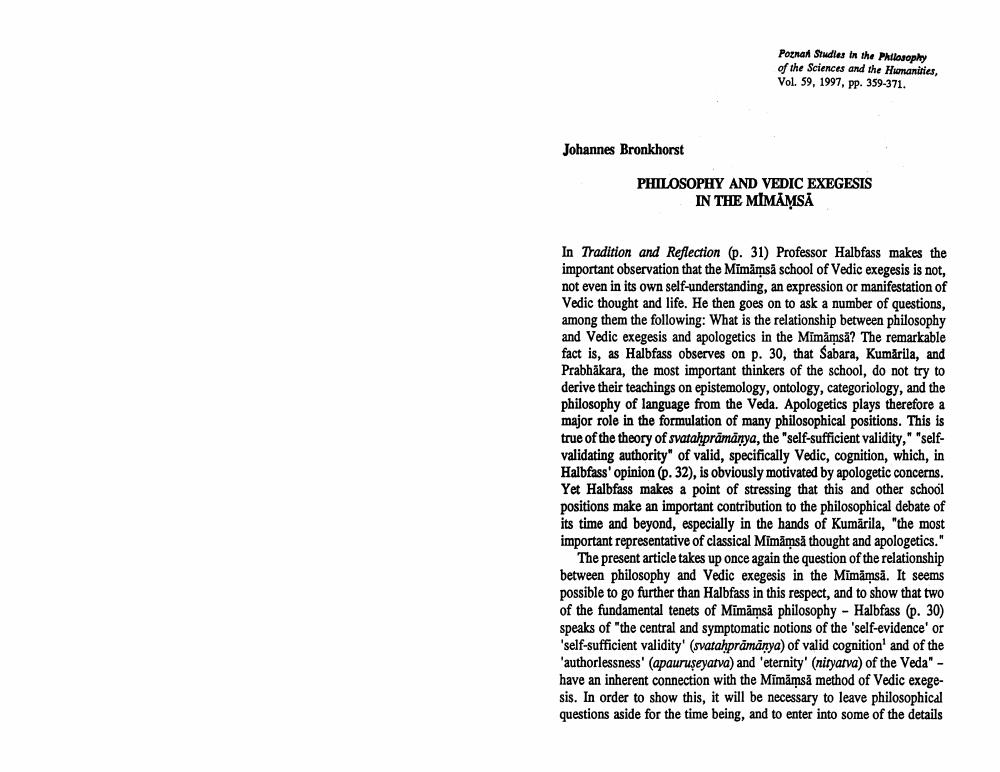Book Title: Philosophy And Vedic Exegesis In Mimamsa Author(s): Johannes Bronkhorst Publisher: Johannes Bronkhorst View full book textPage 1
________________ Johannes Bronkhorst Poznań Studies in the Philosophy of the Sciences and the Humanities, Vol. 59, 1997, pp. 359-371. PHILOSOPHY AND VEDIC EXEGESIS IN THE MIMĀMSĂ In Tradition and Reflection (p. 31) Professor Halbfass makes the important observation that the Mimämsä school of Vedic exegesis is not, not even in its own self-understanding, an expression or manifestation of Vedic thought and life. He then goes on to ask a number of questions, among them the following: What is the relationship between philosophy and Vedic exegesis and apologetics in the Mimämsä? The remarkable fact is, as Halbfass observes on p. 30, that Sabara, Kumarila, and Prabhakara, the most important thinkers of the school, do not try to derive their teachings on epistemology, ontology, categoriology, and the philosophy of language from the Veda. Apologetics plays therefore a major role in the formulation of many philosophical positions. This is true of the theory of svatahpramanya, the "self-sufficient validity," "selfvalidating authority" of valid, specifically Vedic, cognition, which, in Halbfass' opinion (p. 32), is obviously motivated by apologetic concerns. Yet Halbfass makes a point of stressing that this and other school positions make an important contribution to the philosophical debate of its time and beyond, especially in the hands of Kumarila, "the most important representative of classical Mimämsä thought and apologetics." The present article takes up once again the question of the relationship between philosophy and Vedic exegesis in the Mīmāmsā. It seems possible to go further than Halbfass in this respect, and to show that two of the fundamental tenets of Mimämsä philosophy - Halbfass (p. 30) speaks of "the central and symptomatic notions of the 'self-evidence' or 'self-sufficient validity' (svataḥpramanya) of valid cognition' and of the 'authorlessness' (apauruşeyatva) and 'eternity' (nityarva) of the Veda" - have an inherent connection with the Mimämsä method of Vedic exegesis. In order to show this, it will be necessary to leave philosophical questions aside for the time being, and to enter into some of the detailsPage Navigation
1 2 3 4 5 6 7
